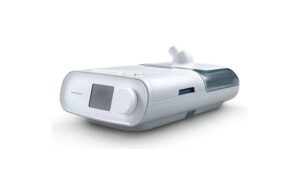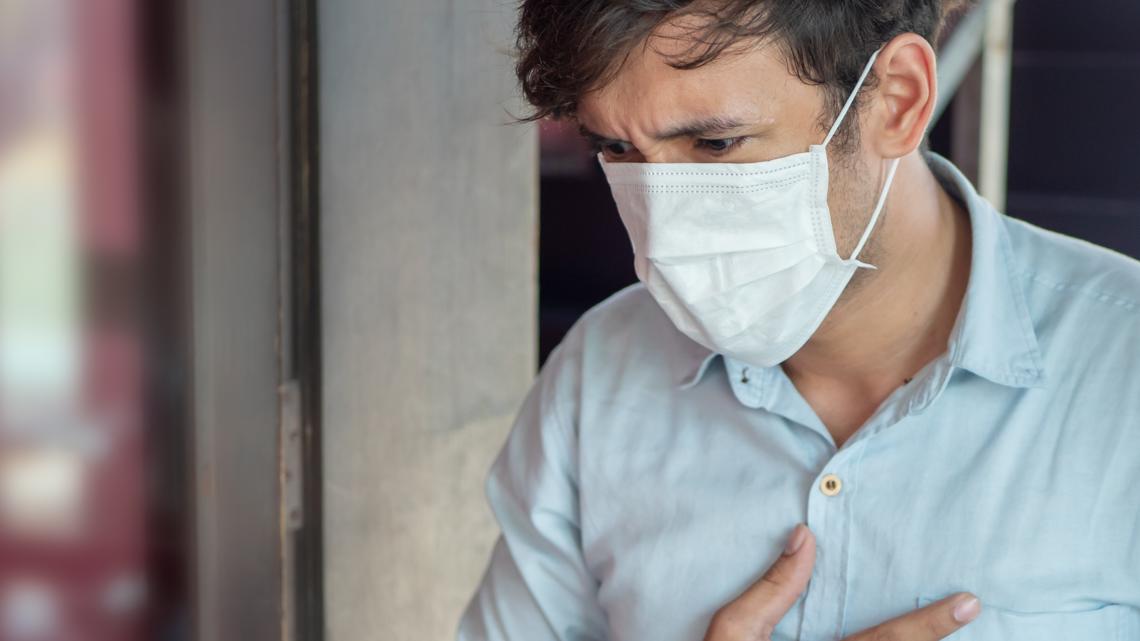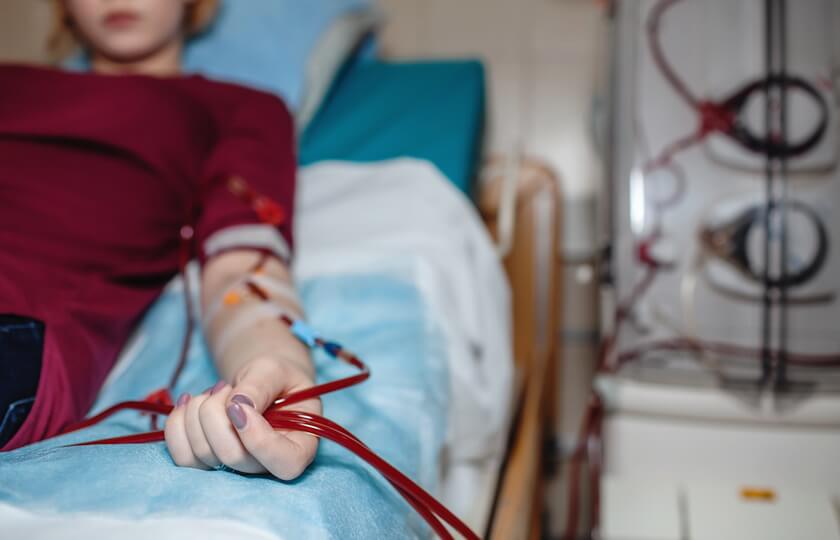How Philips’ significant respiratory devices recall unfolded



There are 5.5 million recalled CPAPs and other devices — and reports of deaths. Here’s a Philips recall timeline.
Philips in mid-2021 kicked off a recall that involved millions of CPAP and BiPAP ventilators and other respiratory devices. The devices — used for sleep apnea therapy and more — had sound abatement foam that could potentially degrade and get into the airways.
Fast forward nearly three years, and Philips Respironics is still effectively out of the respiratory devices market as it works to repair the devices. Since April 2021, the FDA received 105,000 reports of problems — including 385 reports of deaths associated with the foam degradation issue.
Philips CEO Roy Jakobs has said the Dutch medtech giant is deeply sorry about the recall.
Here is a timeline — pulled from MassDevice archives — of how the Philips Respironics recall has unfolded:
2011–April 2021: Few problems reported
The FDA says Philips during this time period only had 30 medical device reports (MDRs) filed associated with the PE-PUR foam degradation in respiratory devices. Only eight reports were from the U.S., with no reports of injury or death.
April 26, 2021: Recall initiated
Philips’ first recall notification involved specific Philips bi-level positive airway pressure (bi-level PAP), continuous positive airway pressure (CPAP) and mechanical ventilator devices due to potential risks related to the polyester-based polyurethane (PE-PUR) sound abatement foam component in the devices, according to MassDevice’s reporting.
June 14, 2021: Philips provides update
Philips said the majority of the affected devices within the advised five-year service life were in the first-generation DreamStation product family. The complaint rate registered at 0.03% in 2020, Philips said.
Philips said it determined through testing that there are possible risks to users related to the PE-PUR sound abatement foam component, including the possibility of the foam degrading into particles that may enter the device’s air pathway and be ingested by the user. Additionally, it said the foam might off-gas certain chemicals. Its degradation might be exacerbated by unapproved cleaning methods such as ozone, as well as high heat and humidity environments.
July 23, 2021: FDA’s first Class I designation over the recall
Class I recalls are the most serious kind, defined by FDA as “a situation in which there is a reasonable probability that the use of or exposure to a violative product will cause serious adverse health consequences or death.”
July 26, 2021: Philips stops taking orders of sleep therapy systems
“As a consequence of the prioritization of the repair or replace actions, we are currently not taking new orders for sleep therapy systems while masks and other consumables, of course, continue to be sold,” then-CEO Frans van Houten said during an earnings call. He said at the time that it would take 12 months after regulatory approval to address problems with all the devices.
Philips remains out of the market.
August 2021: At this point, a number of class-action lawsuits filed in the U.S. and Canada
Aug. 3, 2021: Another serious recall
FDA announced another serious recall involving Philips respiratory devices. The recall — which Philips Respironics announced in an “Urgent Field Safety Notice” letter on June 18 — involved thousands of V60 Plus ventilators and all V60 ventilators upgraded to enable high flow therapy (software version 3.00 and 3.10). If the oxygen flow was partially blocked for any reason, the system would go on providing the patient with lower oxygen flow rate — issuing a low-priority alarm.
Sept. 1, 2021: Philips begins repair and replacement program for recalled DreamStation devices
Oct. 8, 2021: Federal lawsuits against Philips in the U.S. become centralized in a Multidistrict Litigation in U.S. District Court in Western Pennsylvania. It started out with 10 civil actions.
November 2021: Inspection report says Philips ignored problems
An FDA Form 483, produced after inspections of Philips Respironics’ Murrysville, Pennsylvania facility, says Philips and its foam supplier were aware for years that polyester-based polyurethane (PE-PUR) sound abatement foam could break down and potentially enter a device’s air pathway.
January 2022: FDA expands Class I designation to more Philips respiratory devices with potential sound abatement foam problems
March 2022: FDA orders Philips Respironics to improve communications over ventilator recall
April 2022: Another round of serious ventilator recalls
The FDA designated more Philips recalls as Class I. The recalls involved all models of the Philips Respironics V60 ventilator, the V60 Plus ventilator and the V680 ventilator (distributed outside the U.S.). For all three ventilators, the problem involved an internal electrical circuit within the devices, with the potential for ventilators to stop operating.
April 25, 2022: Philips discloses U.S. Department of Justice subpoena over recall
April 30, 2022: Tens of thousands of MDRs at FDA
At this point, the FDA says it had more than 21,000 medical device reports (MDRs) filed that reported sound-abatement-foam-related problems. The agency said 126 of the reports mentioned deaths. (It’s important to note that FDA’s Medical Device Reporting (MDR) system is a passive system with limitations.)
May 2, 2022: FDA steps up recall oversight
The FDA proposed an order requiring Philips to submit a plan for its recalled respiratory devices.
June 22: Philips updates on testing results for recalled ventilators
Philips said only a small portion of returned respiratory devices displayed the sound abatement foam degradation.
July 25, 2022: Consent decree talks with DOJ
During an earnings call, van Houten broke the news that the U.S. Department of Justice, acting on behalf of FDA, had provided a proposed consent decree on July 18. The proposed consent decree came after the inspection of U.S. Philips Respironics facilities in 2021. Van Houten said talks with the DOJ were in the early stages.
Aug. 16, 2022: Another batch of medical device reports at the FDA
The FDA said it had a total 69,000 medical device reports (MDRs) filed related to the sound abatement foam recall, with 168 mentioning deaths.
Sept. 1, 2022: Philips, DOJ settle for $24.8M over Respironics kickback allegations
The U.S. Department of Justice alleged that Philips RS North America (formerly Respironics) misled federal healthcare programs by paying kickbacks to durable medical equipment (DME) suppliers. On top of the $24.8 million settlement, there had been an agreement earlier in the week to pay $4.2 million to resolve claims that Philips substituted the components of its Intellivue MP2 mobile patient monitoring device that it sold to military purchasers without rectifying the device for military airworthiness. Philips remained in separate talks with federal prosecutors over its handling of the respiratory devices recall.
Sept. 6, 2022: More problems, this time with magnetic headgear clips on CPAP masks
The company’s Respironics subsidiary alerted users of CPAP or BiPAP therapy masks with magnetic headgear clips or straps that could negatively interact with implantable, metallic medical devices. Philips said it had distributed more than 17 million masks containing the magnetic clips. It had 14 reports suggesting that the masks may have impacted implanted devices.
Sept. 8, 2022: Philips faces legal scrutiny in France
Reuters reported that French prosecutors had opened a preliminary investigation into the recall.
Sept. 26, 2022: Another Philips respiratory devices recall gets a Class I label
The new recall involved 386 ventilators distributed from Aug. 6, 2020, to Sept. 1, 2021. The BiPAP machines might contain plastic in their motors that could release volatile organic compounds (VOCs). On top of the risk of users inhaling dangerous VOCs, the plastic could also cause device failure.
Sept. 30, 2022: Philips shareholders approve Jakobs as new CEO
Roy Jakobs succeeded Frans van Houten, who had been CEO for more than 11 years. Jakobs joined Philips in 2010 and moved up over the years to become the company’s Connected Care chief business leader. He’s been a go-to person in the company to manage crises. He took a lead on Philips’ COVID-19 pandemic response in early 2020. Then, he took over the handling of the Philips Respironics recall in June 2021.
Oct. 19, 2022: Philips Respironics CPAP, BiPAP mask recall is Class I
Oct. 22, 2022: New CEO says he is ‘deeply sorry’ over Respironics recall
Jakobs said the Dutch medtech giant is taking steps to realign itself with its “people-centered” ideology. “Delivering on this is what matters most, and that will require us to double down on what we do best, continuing to innovate, but also urgently fixing things where we have disappointed patients and customers. This will, of course, also help to restore our financial health.”
Oct. 24, 2022: Major layoffs announced
Philips said it would cut its workforce by roughly 4,000 roles globally — representing about 5% of the headcount listed in its most recent annual report. Jakobs said the company’s immediate priority was to “improve execution so that we can start rebuilding the trust of patients, consumers and customers, as well as shareholders and our other stakeholders.”
Nov. 18, 2022: Philips’ respiratory devices recall has even more problems
The FDA said Philips had informed it that reworked Philips Respironics Trilogy ventilators had two new potential issues. Philips soon followed up with a news release that said the Trilogy 100/200 ventilators with potential additional problems make up roughly 3% of the 5.5 million respiratory devices in the original recall. (That comes to roughly 165,000 devices.)
Nov. 22, 2022: More deaths reported in Philips respiratory devices recall
The FDA issued an update that reports of sound-abatement-foam-related problems had grown to 90,000, including 260 mentioning deaths.
Dec. 21, 2022: Philips says recalled DreamStation sleep therapy device tests show ‘unlikely’ harm to health
Philips released results from tests on health risks related to its recalled DreamStation sleep therapy devices. Philips’ testing showed that, among other things, exposure to certain emissions from the recalled devices is “unlikely to result in appreciable harm to health in patients,” according to the company.
January 2023: The nonprofit safety organization ECRI lists communications over problems with home medical devices as the No. 1 health technology safety issue for 2023.
It cited the Philips recall as a prime example.
Jan. 30, 2023: Philips to reduce global workforce by another 6,000
“Right now, it is very important to lead with realism. I am also a great believer in knowing where I want to go and having a clear plan to get there, a plan that people can understand and have confidence in,” Jakobs said. his earnings presentation showed Philips gradually restoring its place in the respiratory devices market through 2025.
Feb. 1o, 2023: Philips says the total number of MDRs filed reached 99,000 for the period from April 2021 through December 2022.
A year and a half into the recall, Philips has now gained a better understanding of potential health risks, Jakobs said in the update. “I would like to stress that we are very sorry that it has taken this much time, but the testing involved long throughput times and needed to be done thoroughly. We deeply regret the concern and uncertainty felt by patients, their physicians, and customers, and continue to work hard to address their needs”
The FDA added that 346 reports mentioned death.
The next day, Jakobs announced the appointment of Steve C de Baca to the newly created role of chief patient safety and quality officer.
Feb. 17, 2023: Philips recall of certain reworked Trilogy and Garbin ventilators is Class I
April 7, 2023: Another serious re-recall. This time, it involves reworked DreamStation CPAPs.
June 2, 2023: The FDA updates that it has received more than 105,000 MDRs, including 385 reports of death, reportedly associated with the foam breakdown problem.
The MDRs were from April 21, 2021 to March 31, 2023.
July 24, 2023: Consent decree talks with DOJ continue
During Philips’ Q2 earnings call, Jakobs declined to speculate on when Philips will resolve ongoing consent decree talks with the U.S. Justice Department related to its massive recall of CPAPs and other respiratory devices. He had previously expressed hope that the talks would be resolved during the first half of 2023, but said the timing was out of Philips’ control.
“This needs to be done diligently,” Jakobs said.
In addition, Philips continues to engage in major belt-tightening. It’s already cut 6,600 jobs out of a planned reduction of 7,000 roles by 2023 and 10,000 roles in total by 2025.
Aug 14, 2023: Exor buys a stake in Philips
Philips got a vote of confidence from Exor, the investment arm of Italy’s wealthy Agnelli family, which bought a 15% stake in the Dutch medtech giant to become its largest shareholder. Media reports estimated the deal is worth $2.8 billion. Exor gained the right to nominate a member of Philips’ Supervisory Board.
Aug. 15, 2023: A serious recall for several Philips Trilogy ventilators
The latest Class I recall for Philips Respironics covered 73,000 Philips Respironics Trilogy Evo, Evo O2, EV300, and Evo Universal ventilators in the U.S.
Philips initiated the recall of Trilogy Evo, Evo O2, EV300, and Evo Universal ventilators on March 22 after detecting dust and dirt from the environment in the air path of some devices. Extended exposure to environmental contaminants such as dust and dirt can lead to buildup that may block air vents and cause the device to stop delivering the right amount of air pressure or air volume/flow.
Philips has received 542 reports about the problem, the FDA said. There are currently two reported injuries and one death.
Sept. 5, 2023: The total number of civil actions transferred to the MDL in Western Pennsylvania reaches 300.
Sept. 7, 2023: A major civil lawsuits settlement
Philips announced it is set to pay at least $479 million to settle claims related to its ongoing Respironics recall.
Subject to approval in the U.S. District Court in Western Pennsylvania, the deal only covers economic losses incurred by the users of millions of Philips CPAPs and other respiratory devices recalled over sound abatement foam that could potentially degrade and get into airways.
The next month, U.S. District Court Judge Joy Flowers Conti granted preliminary approval to the settlement.
It could just be the beginning. Philips did not admit liability, wrongdoing or fault in the settlement and still faces significant lawsuits claiming deaths, injuries and medical costs related to the recall.
Sept. 27, 2023: ProPublica and the Pittsburgh Post-Gazette publish their investigation
Between 2010 and 2021, Philips withheld the vast majority of the warnings about black particles, dirt, dust and other contaminants in devices’ airway chambers from the FDA even as the reports became more alarming each year, according to the investigation. (Here’s a summary of the report on MassDevice.)
Philips said in response to the report: “The articles do not present new facts, and we do not agree with the characterizations made in these articles.”
Oct. 5, 2023: An FDA communication calls for Philips to conduct more testing in the sound abatement foam recall
Oct. 27, 2023: Another ProPublica/PostGazette report claims to shed more light on the role that Jakobs played in the recall.
Nov. 28, 2023: The FDA warns of thermal issues with Philips DreamStation 2 CPAP machines.
Dec. 13, 2023: Two U.S. senators send a letter calling on the government to review the FDA’s oversight of medical device recalls amid the Philips Respironics recall.
Dec. 28, 2023: A new ProPublica/PostGazette report
The report says tests by independent laboratories found a different foam used in replacement machines also emitted formaldehyde and other dangerous chemicals.
Jan. 29, 2024: Consent decree agreement in the U.S.
Philips discontinues certain CPAP product lines as it agrees on a consent decree with the FDA and DOJ.
Philips said the agreement provided “clarity and a roadmap” for compliance and the restoration of the business. William Blair analysts thought Philips likely won’t be able to sell respiratory products without restrictions until 2025 — at the earliest.
This story originally ran on Jan. 12, 2023. Updated Jan. 29, 2024 with the latest developments.
link





